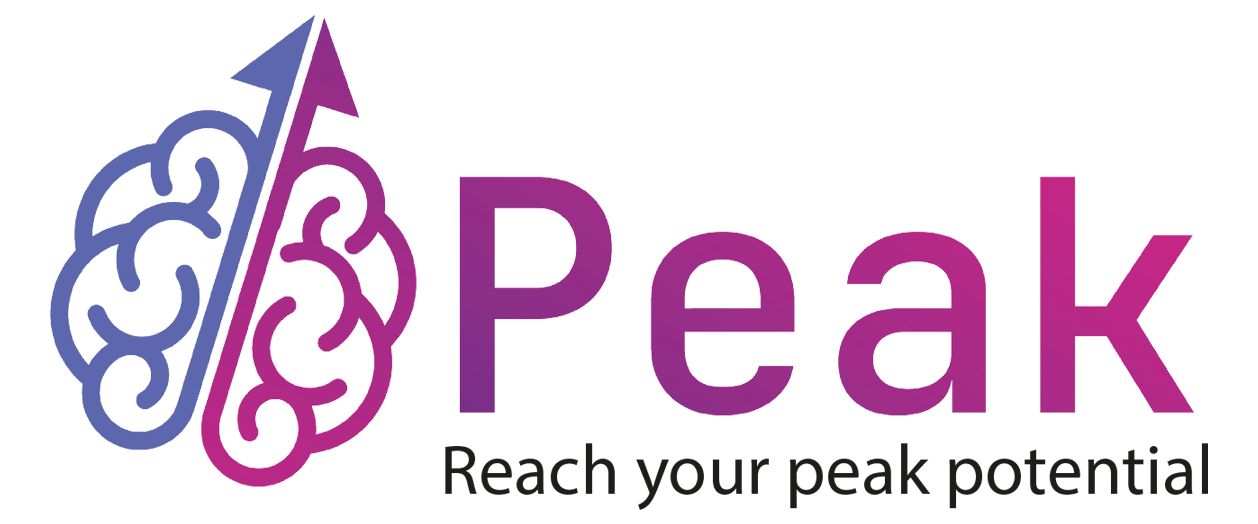Neurofeedback Sport Peak Performance
"The difference between gold and
silver is not muscles, it is brain"
Through neurofeedback, athletes can learn to modulate their brainwave patterns associated with specific performance states. By gaining control over their brain activity, athletes can better manage distractions, reduce performance anxiety, enhance reaction, and improve mental clarity, ultimately leading to enhanced athletic performance.

Canadian Olympic gold medallist Erica Wiebe a neurofedback story
Elite Performers Using Neurofeedback

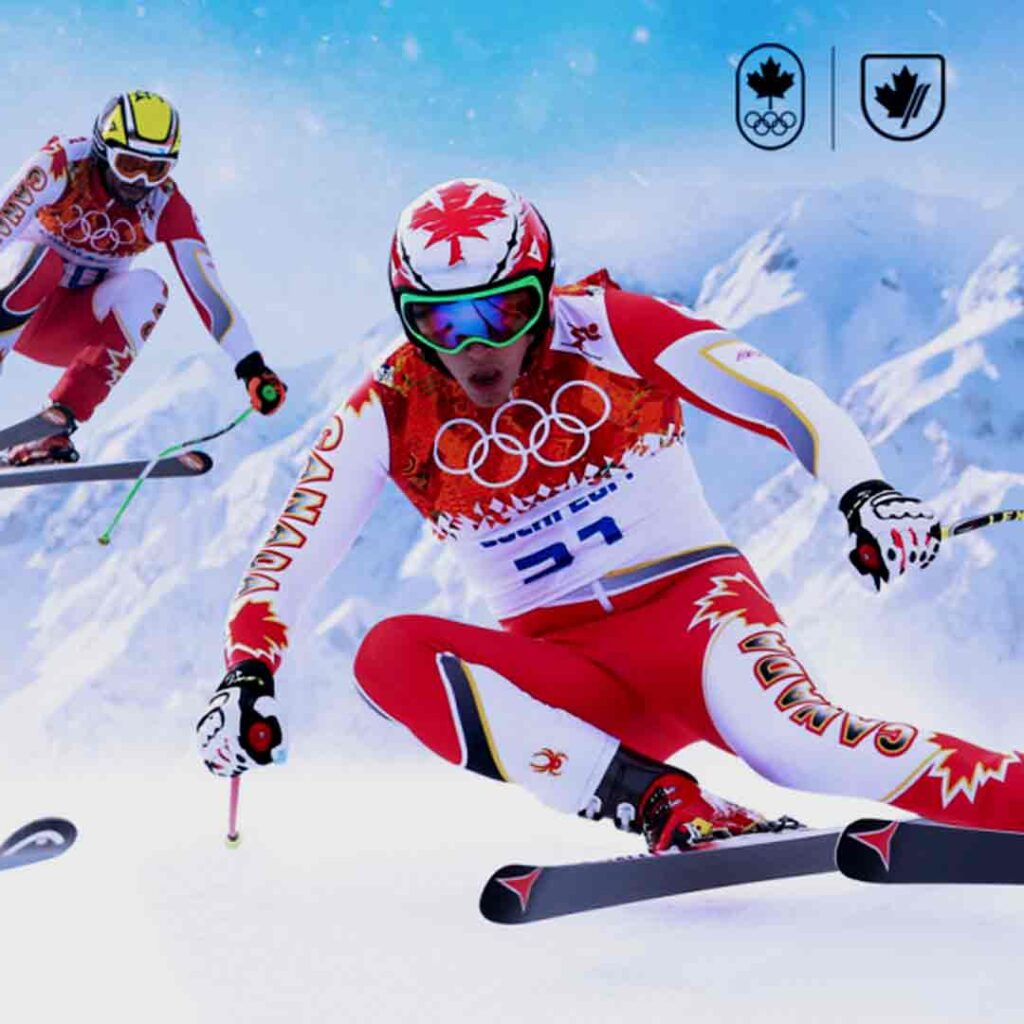

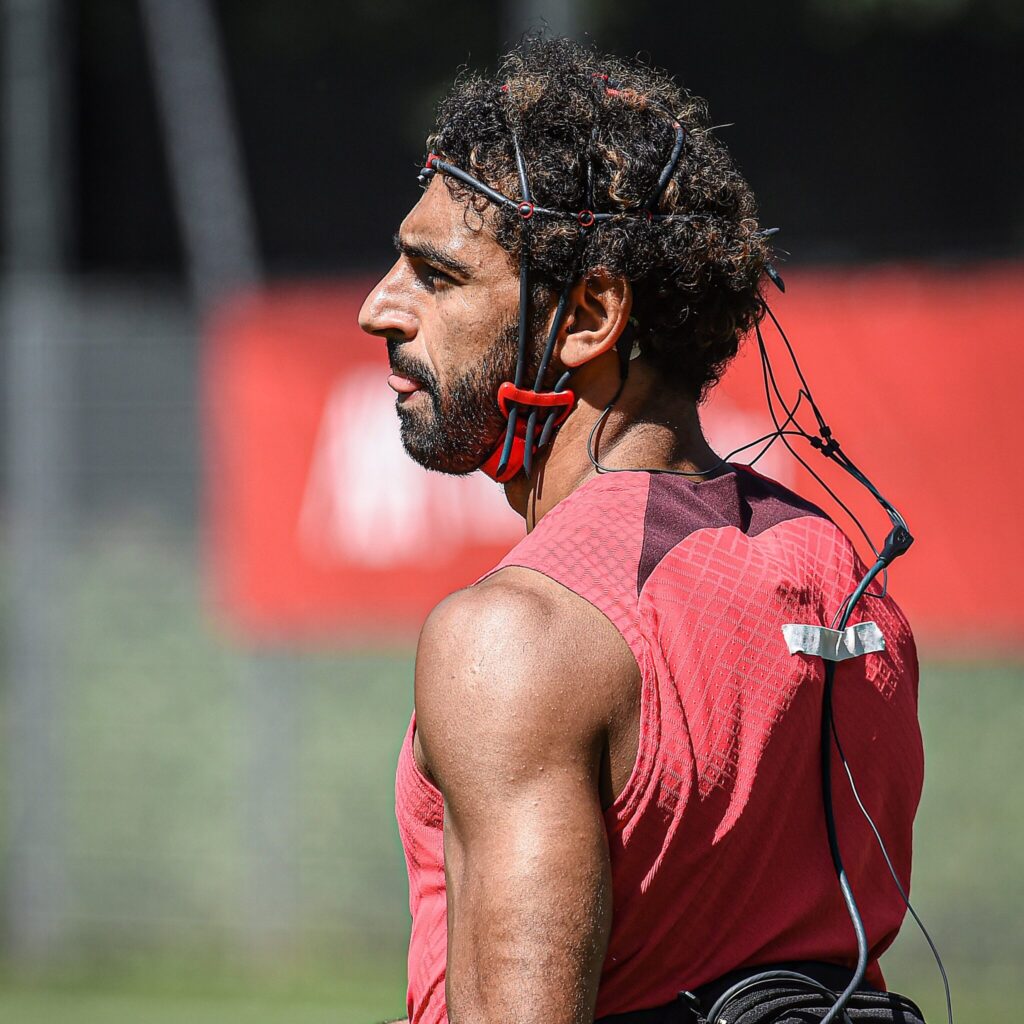
Neurofeedback makes it possible for athletes to gain a competitive edge on the sports field. By identifying areas of the brain pertinent for performance enhancement and improving their functioning, behaviors can be altered; athletic deficits, areas of weakness, and even extraneous distractions can be eliminated from the game. “Different sports place different demands on the brain“. Training has been found to be effective in many different sports.
Many sports teams around the world are beginning to turn to neurofeedback in order to become more successful on the playing field, the Italian soccer team received neurofeedback training and when they won the World Cup, they attributed their win to that very training, Mo Salah, Mary Pierce, different Olympic training centers, and many others.
Upgrade your Brain for Peak Performance
The Brain
The brain is a muscle and just like every other muscle in your body if you don’t use it or exercise it, it will weaken or atrophy. The opposite is also true about the brain. Just like every other muscle in your body it can be strengthened and trained for optimal performance.
The brain controls everything in our body physically and mentally. A healthy brain has optimal speed. The brain is electrical and the speed of the electrical energy flowing through the brain is known as processing speed or brainwaves.
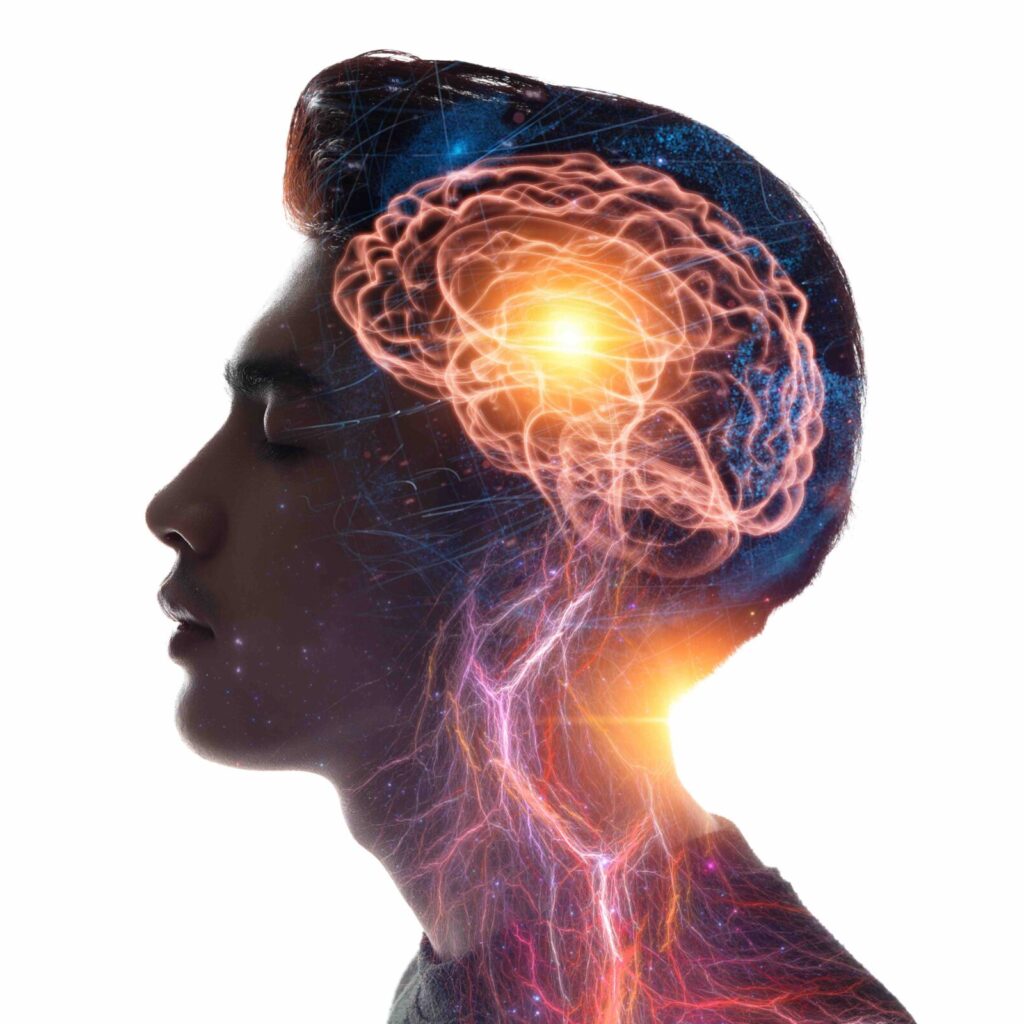
Brainwaves
Brainwaves provide a great deal of information on how we are feeling and functioning. Brainwaves breakdown energy by speed and depending on your brain’s speed we can identify states of distractibility, focus, relaxation, stress, underlying moods, and overall brain function. Neurofeedback involves providing insight on your brain’s activity and comparing what your brain does to what you would want it to do.

Delta
the slowest brain wave is associated with “sleep, repair, and complex problem solving”.

Theta
are linked to “creativity, insight, and deep states”.

Alpha
are connected to “alertness and peacefulness, readiness, and meditation”.

Beta
are associated with “thinking, focusing, and sustained attention”.

Gamma
play an important role in learning, problem-solving, organization, mental clarity, and are associated with high cognitive functioning.
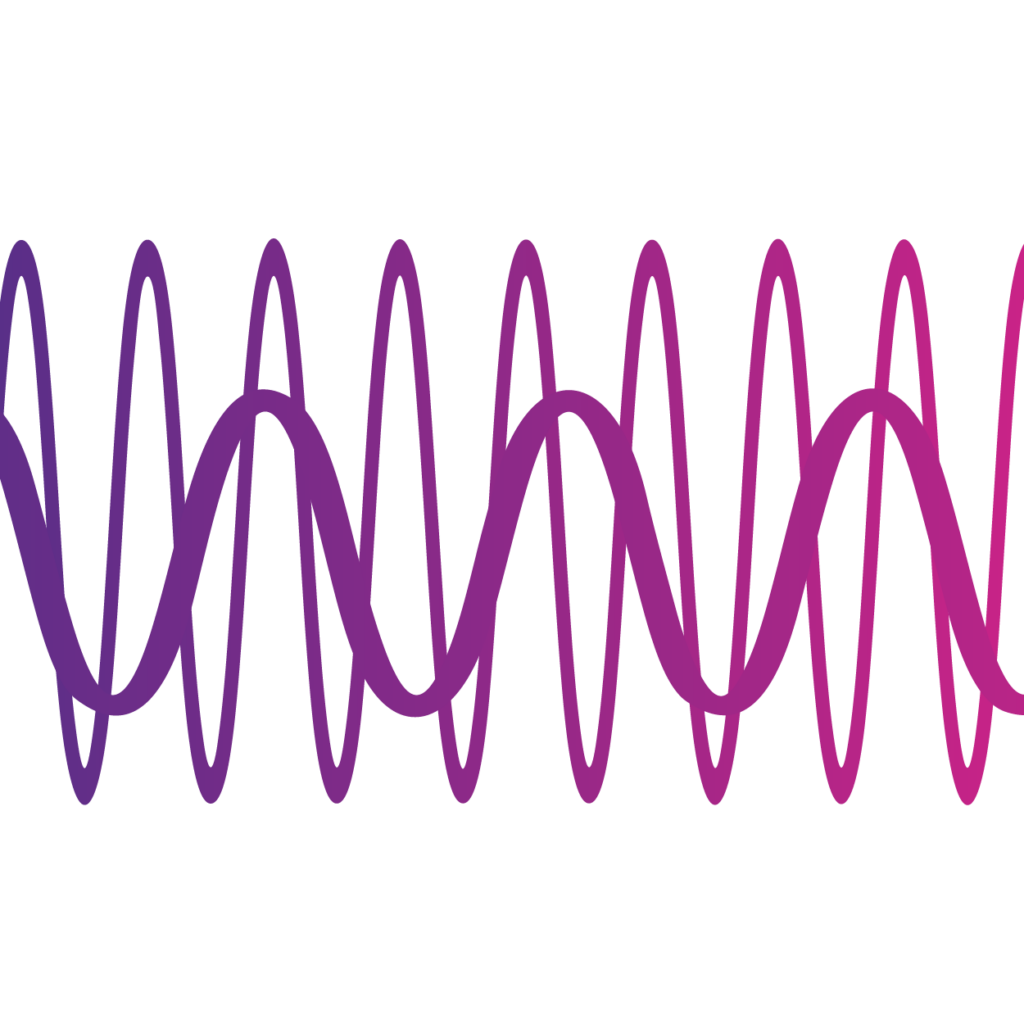
Sensorimotor rhythm (SMR)
is a specific brain wave frequency promotes “mental alertness” along with “physical relaxation” .
The Athlete journey to Peak
In order to obtain optimal results, neurofeedback for peak performance training begins with appropriate psychological assessment related to specific sport requirements, and evaluation of an individual’s brain waves activity. Individualized training plans are based upon the assessment findings and the specific needs of the targeted sport or activity
Psychological assessment
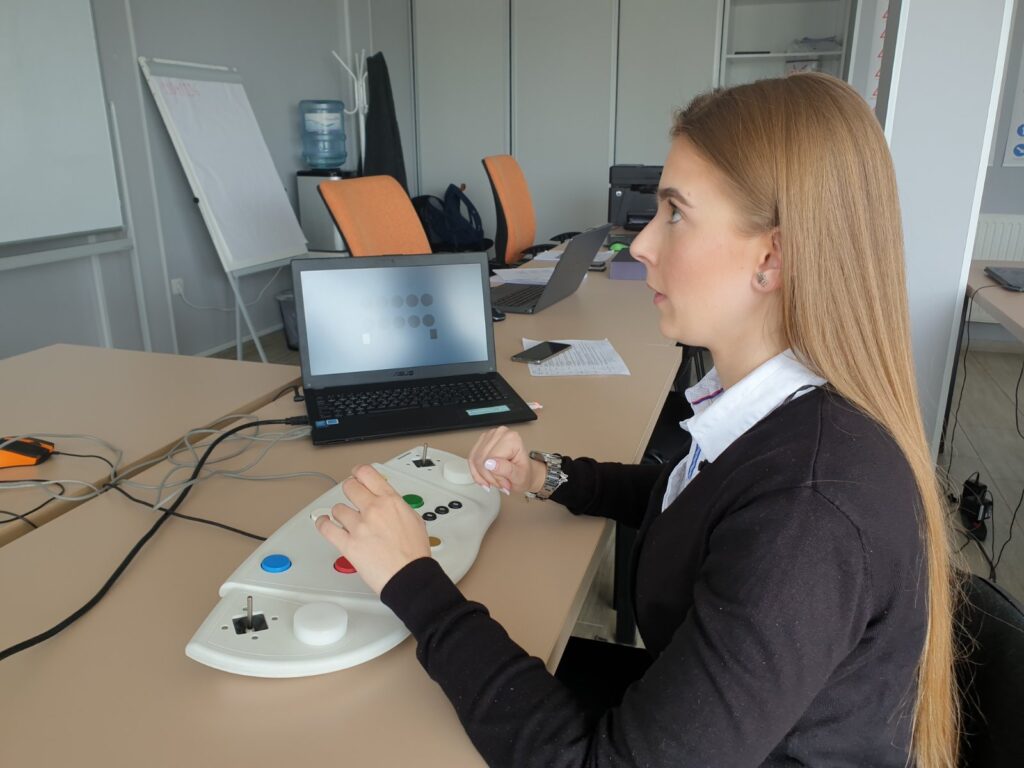
Psychological assessment can be used to assess a large number of ones ability and personality factors that are relevant to success in sport. Insights gained from sport psychology can make the athlete more aware of the conditions and processes that affect his actions and of the consequences of particular approaches; personalised training approach for peak Performance. Test dimensions include.
- Attention.
- Cognitive abilities.
- Reactive behaviour and visual functions
- Sensory motor functions
- Sport related aspects of personality
QEEG Brain mapping
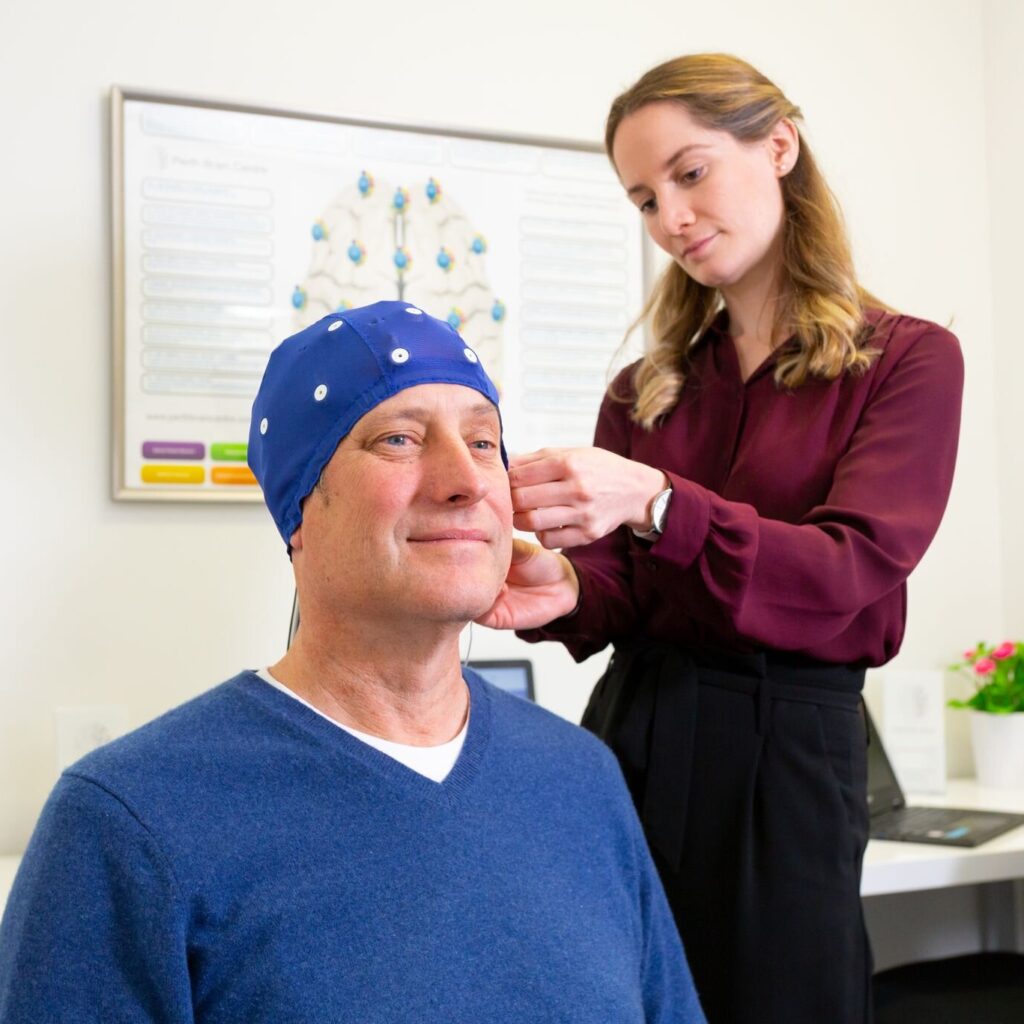
QEEG brain mapping is a technique used in neurofeedback training protocols. It involves analyzing and mapping the electrical brain activity recorded through an EEG device. The data is processed and compared to established norms to create a brain map. The brain map shows the different frequencies and amplitudes of brainwaves in specific regions of the brain.
Based on the brain map, a personalized training protocol is developed, this training involves increase or decrease certain brain waves that will have a positive impact on the individual’s specific sport performance, and the individual receives real-time feedback during neurofeedback training sessions.
Neurofeedback training
Neurofeedback is a technique used in peak performance to train and optimize brain activity. It involves monitoring a person’s brain waves, usually through electroencephalography (EEG), and providing real-time feedback to help them learn how to regulate their brain function.
During neurofeedback sessions, sensors are placed on the individual’s scalp to measure their brainwave patterns. These patterns are then translated into audio or visual feedback that the person can perceive. By observing this feedback, individuals can learn to adjust their brain activity in a way that promotes optimal performance.
In the context of peak performance, Neurofeedback aims to enhance specific brainwave patterns associated with focus, attention, relaxation, and cognitive efficiency. By training the brain to produce these desired patterns consistently, individuals can improve their mental clarity, decision-making, and overall performance and unlock their full potential.
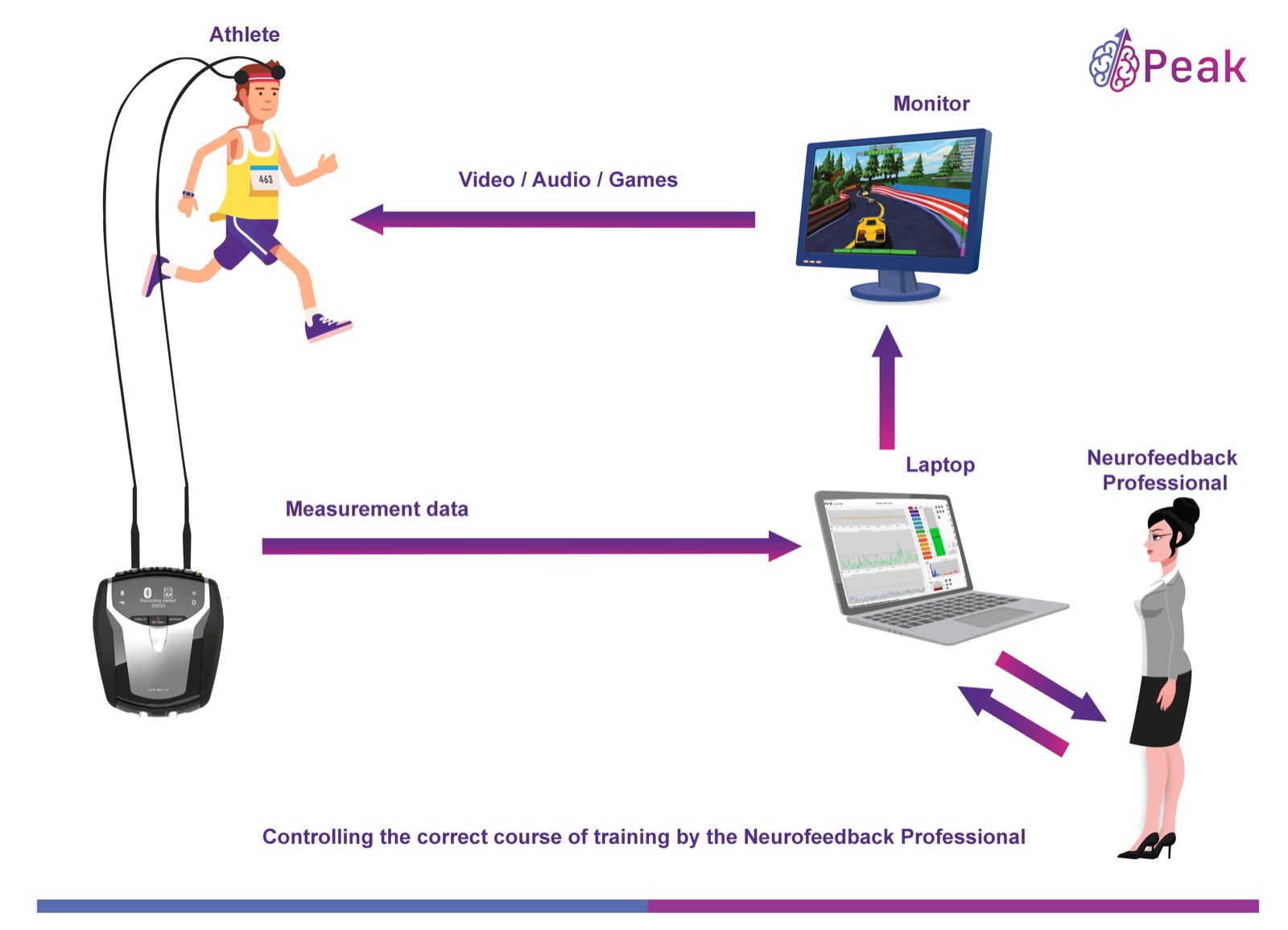
Neurofeedback benefits for Athletes
Cognitive Benefits
In high-pressure situations, quick decision-making and strong cognitive skills are crucial. Alpha brain waves play a significant role in achieving peak performance. These waves are associated with various mental states such as relaxed focus, inner calm, peacefulness, and calm attention. Additionally, alpha waves are linked to cognitive efficiency and intellectual performance.
The ratio between theta and alpha brain waves has an impact on a person’s problem-solving ability. When alpha and theta waves are trained to increase simultaneously improves insight, cognitive understanding, and processing speed.
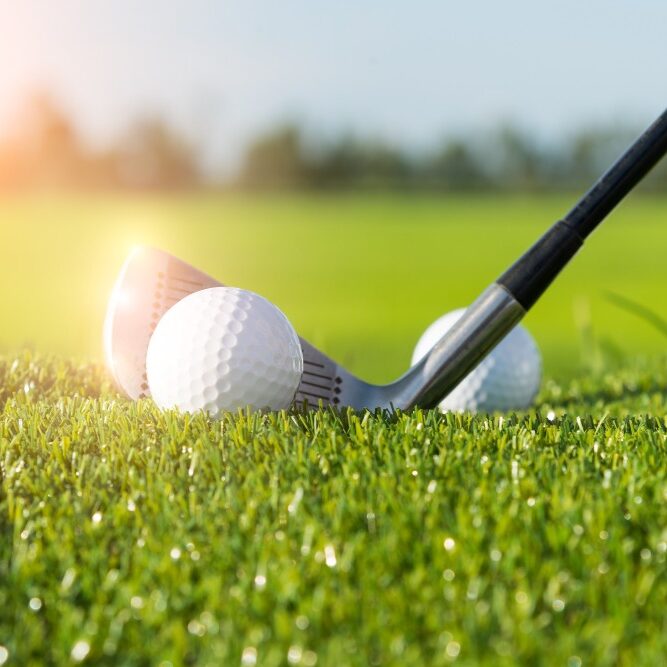
Sport application
The game of golf requires calm, focused attention and effective problem-solving skills to overcome challenges encountered on the course. Alpha waves neurofeedback for Golf performance produced significant improvement in performance, decrease negative self-talk, disruptive thoughts.

Sport application
Many athlete require sustained attention, concentration and reaction speed. Baseball study, demonstrated that players improved in the areas of “attention, decreased intrusive thought patterns and improvements in sleep patterns”. Also, shooting score improvement in Olympic shooters.
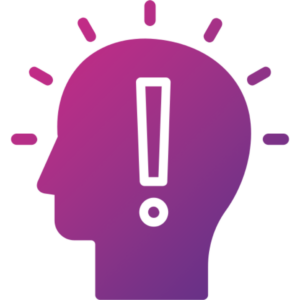
Attention/Concentration
The brain waves activities during a task demonstrate individual’s cognitive functioning and emotional state. If a person is distracted, experiencing comprehension difficulties or daydreaming, the brainwaves activity would likely reflect a high theta to beta wave ratio. This ratio is associated with a person’s ability to control and sustain attention.
In addition to difficulty sustaining attention, intrusive thoughts can disrupt one’s concentration and focus, thus hindering performance. Sudden shift precedes an intrusive thought. Neurofeedback training can be used to decrease intrusive thoughts
Reaction Time
Experienced athletes show a consistent performance at optimal levels, and all performance situations in sports require proper reaction time. Reaction time refers to the amount of time it takes from the moment we perceive something to when we respond to the stimulus, and it is the ability to detect, process, and respond to a stimulus. It has been an index that allows the assessment of internal cognitive-motor resources associated with the athlete’s performance. significantly inferring the individual’s ability to make complex decisions and initiate actions quickly and effectively. Neurofeedback training is an effective tool in improving brain functions for visual and auditory reaction time.
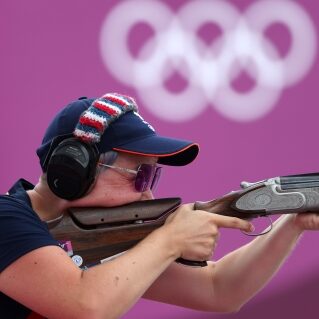
Sport application
Professional shooters received neurofeedback training for strengthening the beta frequency. The differences between the first and the second measurement show that the shooters included improved their abilities by executing more quickly and accurately during the second measurement.
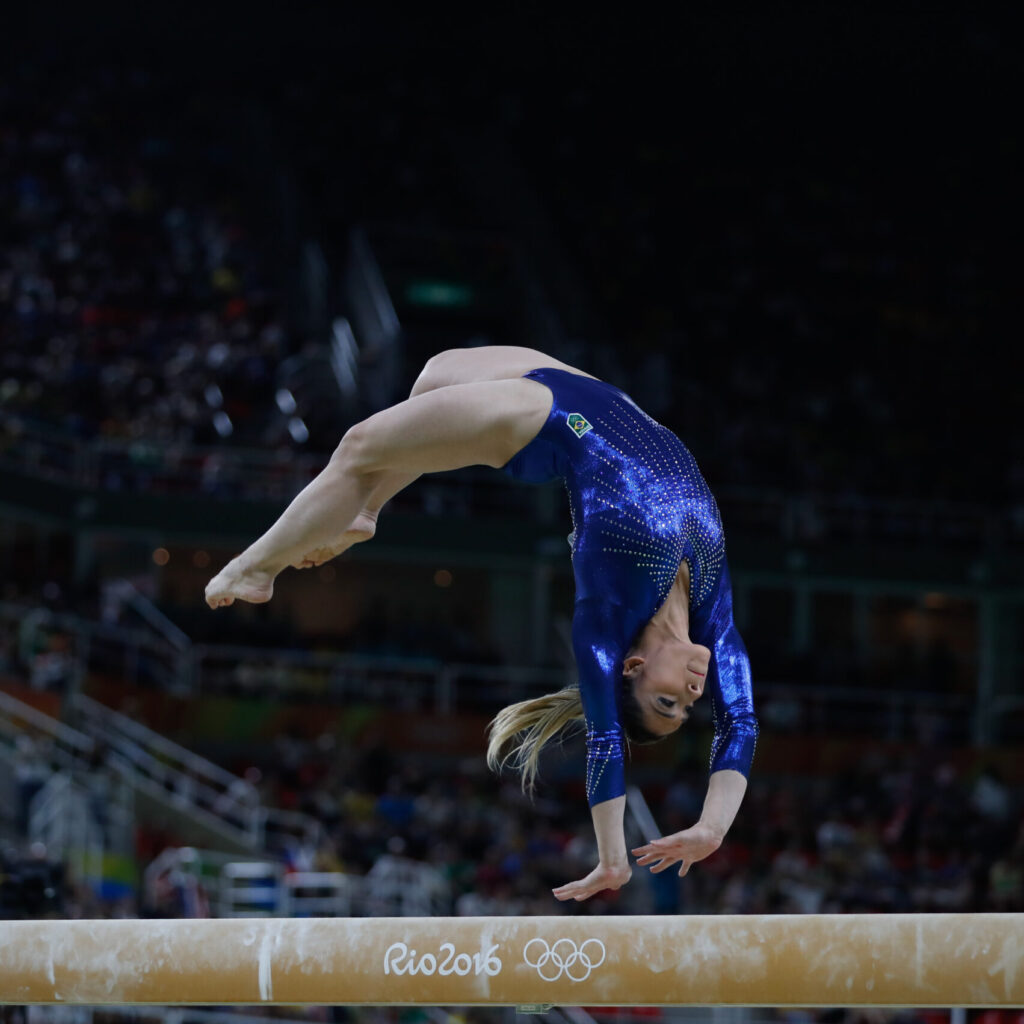
Sport application
Neurofeedback training for female gymnasts’ performance on the balance beam. This particular event was selected due to its precise nature and susceptibility to performance pressure. An independent judge reviewed and scored the performance of the gymnasts before and after neurofeedback found improvements in their performance as a result of the training.
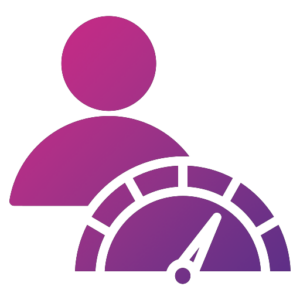
Arousal Level
Arousal is a general physiological and psychological activation, varying to intense excitement”. A certain amount of arousal is required to achieve peak performance. However, too much arousal leads to anxiety, anger, and impulsive behavior and outbursts, while too little can lead to lack of energy or drive and boredom.
Neurofeedback is a helpful tool in achieving an ideal level of arousal. When an individual experiences low arousal, neurofeedback training can boost or increase arousal. Under high pressure situations or other high arousal situations, training can help reduce arousal, anxiety, anger, or other undesirable behaviors
Worry and Rumination
Neurofeedback is able to decrease negative self-talk through enhanced attention skills. Neurofeedback can help individuals reduce distraction tendencies while increasing their ability to become alert. Theta/beta ratio can detect the presence of negative self-talk, rumination, and judgment.
“Calm athletes” are individuals with a theta/beta ratio between 1 and 1.25. Athletes suffering from excess worry and rumination (also called busy brain) typically experience theta/beta ratios 1.5 and higher. Neurofeedback training can help individuals reduce negative self-talk and rumination by teaching the brain to engage in “calm” and “focused” thinking. This is achieved by increasing sensory motor rhythm and lowering theta waves.

Sport application
Fifteen elite athletes preparing for the Vancouver 2010 Olympics underwent an EEG and psychophysiological stress assessment, and accordingly neurofeedback training intervention. Both athletes and coaches reported improvements in managing the stress of training and competition and was a factor in producing better performances.
Neurofeedback is trusted by



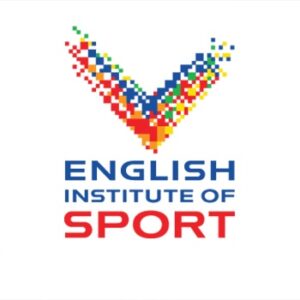




Book Your Consultation
Giving you the opportunity to
Answer all your questions
Assess whether our services are suitable for your needs

